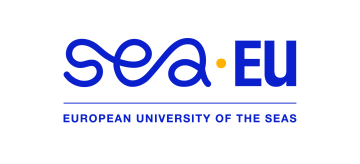The research activity that he has carried out has been fundamentally focused on the theoretical and numerical analysis of problems governed
by nonlinear partial differential equations (PDEs), including: turbulence models for both incompressible and compressible fluids, the thermistor problem, the primitive equations of the ocean, mathematical models for the description of the heat treatment of steel, including mechanical effects, etc.
Initially, the research developed by the group coincides with that of the group leader, and was developed by the initial group members. Later on, the incorporation of other members led to the inclusion of new lines of research (diffuse sets, formal treatment of related information systems, etc.). In both cases, this activity has resulted in numerous publications in high impact journals. These investigations have been (and continue to be) carried out within various R+D+i projects.
ORCID ID: 0000-0002-9821-8002
Porous medium equation.
Navier-Stokes equations.
Elliptical and non-linear parabolic equations.
Partial differential equations in Orlicz-Sobolev spaces.
Primitive equations of the ocean.
Stochastic risk assessment of nuclear waste storage.
Mathematical tools for the extraction, manipulation and prediction of information in databases.
Turbulence modelling.
Thermistor problem.
Formal processing of relational information systems.
Heat treatment of steel.
Fuzzy sets. Fuzzy logic.
FQM315 has the ability to analyze and numerically simulate physics and engineering models governed by PDEs.
The group has developed powerful mathematical tools for the processing, handling and obtaining information from knowledge systems (Big Data). As a consequence, FQM315 designs intelligent and automatic systems to carry out process optimizations, recommendations for decision making, analysis and predictive maintenance. It has designed intelligent and automatic systems in sectors such as agriculture, energy, aeronautics, digital forensics, etc.
1. Capacity Solution to a Nonlinear Elliptic Coupled System in Orlicz–Sobolev Spaces
Hicham Moussa, Francisco Ortegón Gallego, Mohamed Rhoudaf
Mediterranean Journal of Mathematics (2020) Vol: 17/67. Pgs: 1-25
2. Analysis and numerical simulation of an induction–conduction model arising in steel heat treating.
J. M. Díaz Moreno, C. García Vázquez, M. T. González Montesinos, F. Ortegón Gallego.
Journal of Computational and Applied Mathematics, vol. 236, 3007-3015 (2012).
3. Extended multi-adjoint logic programming.
Mª Eugenia Cornejo, David Lobo, Jesús Medina.
Fuzzy Sets and Systems, 388, 124-145 (2020).
Juan Carlos Díaz, Jesús Medina, Esko Turunen.
Fuzzy Sets and Systems, 311, 112-123 (2017).
5. On an induction–conduction PDEs system in the harmonic regime
M.T. González Montesinos, F. Ortegón Gallego
Nonlinear Analysis: Real World Applications, vol. 15, 58-66 (2014).
Nonlinear Analysis: Real World Applications, vol. 15, 58-66 (2014).
